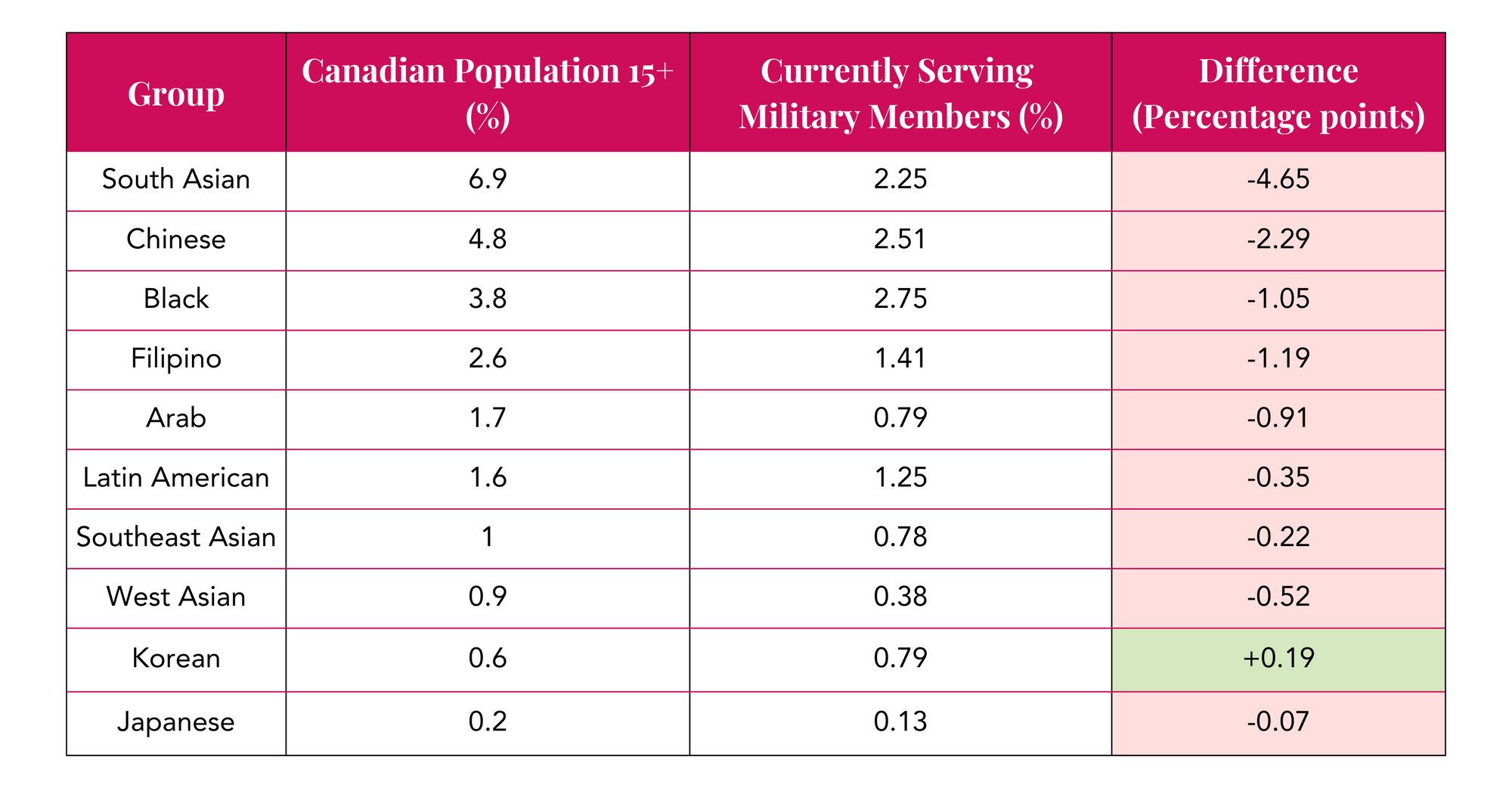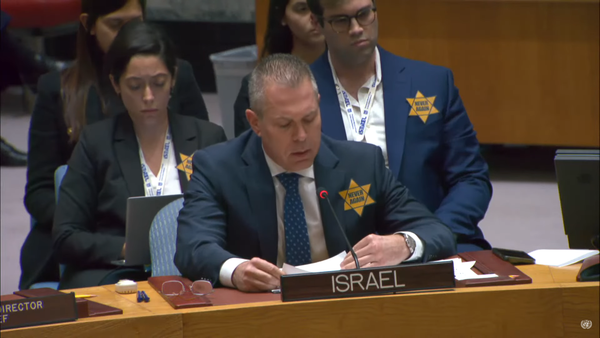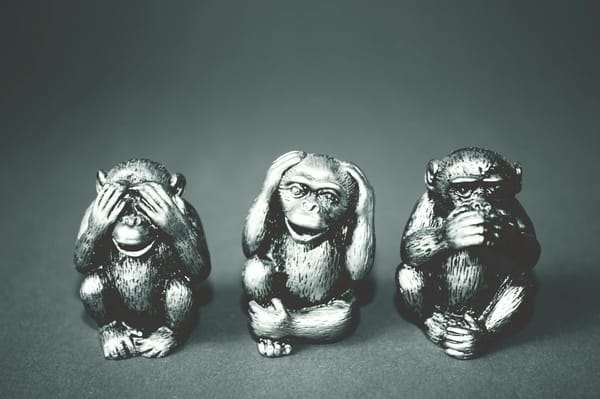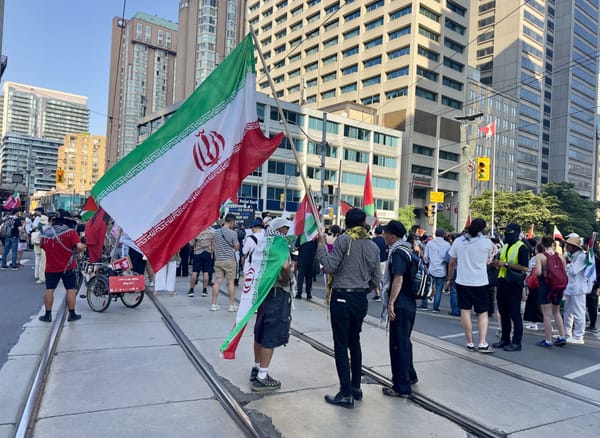In recent years, the idea of defunding and/or abolishing the police has become increasingly popular in Canada. While this idea isn’t new on the left, it has managed to spread to a far-broader audience, with various forms of the argument being accepted by ‘progressives’ at large and many liberals. The movements that have sprung up around this idea largely haven’t managed to actually defund, and certainly not abolish, the police, but they’ve been able to help change the way a significant segment of the population thinks about policing.
The necessity of the police in a wide range of situations they’re currently used for has been questioned. The habit of framing police brutality as mere cases of ‘bad apples’ has been increasingly replaced with a more systemic critique, which implicates policing as a whole and individual officers for taking part in it. Past attempts to remodel or rebrand the police — for example by focusing on diversity initiatives — have been mocked, with focus being placed instead on how marginalized communities are hurt by police regardless of whether or not officers look like them. And yet, despite this progress, the Canadian military, which can be thought of as policing on a global scale, has largely managed to avoid being the target of any sort of significant and sustained movement for defunding or abolition, or even being questioned in a systemic fashion.
For example, a search of the Canadian Newsstream database for the terms “defund the police” and “abolish the police” brought up 2,764 and 358 results, respectively. Meanwhile, a search for “defund the military” and “abolish the military” brought up just one and 39 results, respectively. Mainstream media hasn’t been forced to cover these ideas when it comes to the military in part because the movements and groups that could force them to do so, as they did with the police, are miniscule or non-existent.
Most of the lessons supposedly learned through the advancements made in anti-police activism have been disregarded when it comes to the military. In fact, when it’s not being ignored entirely, the military sometimes gets treated with the same sort of reformist suggestions now mocked when applied to police, or protected with rhetoric that is supposed to indicate nuance but ends up excusing the Canadian Armed Forces (CAF). But the blind spots and excuses don’t end at the systemic level, and extend, with even more conviction, to soldiers themselves.
One argument made about the military, which (usually) isn’t done to defend it per se but rather to try to make excuses for those that join it, is that racialized people are overwhelmingly represented within it. It’s obvious that those making this argument came across it in the context of the United States and were too lazy to check if it’s true in Canada. It’s mostly not.
Last year, Statistics Canada released a report on the demographic makeup of the military based on the 2021 Census. They focused on the representation of what they call “visible minorities,” as well as Indigenous people. The military boasted that 5.5 per cent of its members are Indigenous compared to 4.4 per cent of the general population over the age of 17. This is a pretty miniscule difference. When it comes to “visible minorities,” meanwhile, the opposite — that they’re actually underrepresented — is not only true when lumping them all together, but also for almost every individual group. The stats show that about 13 per cent of military members are visible minorities compared to around 25 per cent of the Canadian population over the age of 15. Here are the numbers for the categories StatCan uses compared to the general population.

Does the fact that Korean Canadians are overrepresented by a 19th of a percent in any way justify framing the military as some sort of force overwhelmingly composed of racialized people?
You don’t even need to look at these stats to see that this conception of what the Canadian military is is wrong — you can just read the news. The military frequently releases statements and reports either bemoaning the fact that not enough racialized people have joined their ranks or celebrating small steps toward demographic parity, not even overrepresentation. The military may aspire to be a “diverse” and “inclusive” organization (though such aspirations should be widely mocked, as they are for police forces), but it’s absolutely not one, nor does it look like it will be any time soon, according to recent reports from the military ombudsman.
Moreover, leftists rightfully identify policing as an institution that was created for the purpose of protecting white supremacy, and claim that being part of it furthers those ends regardless of an officer’s identity — and the same is true for the military. The military trying to ensure its existence by becoming more diverse is a sinister development, not a sign of progress that makes its actions warranted or participation in it excusable.
Another claim often made is that the military provides an easy path to financial stability that people, particularly those who are racialized, have a difficult time finding elsewhere. Putting specifics aside for now, it’s worth considering the thinly veiled implications of this argument: being part of an institution responsible for maintaining Western domination abroad, largely through terrorizing populations in the Global South, is justified or excusable if it provides some benefit for a resident of the Imperial Core. This is the logic of colonialism as marketed to the masses: sure, you’ll never reap the real rewards of the plunder and terror, but the activities abroad will bring some benefit to you. It’s not a sign of “privilege” to argue that personal benefit shouldn’t justify becoming part of the military or serve as an excuse from critique.
It’s also worth considering how this applies to the police. ‘All cops are bastards’ (ACAB) is a popular slogan on the left, sometimes used just to be edgy and other times serving as a summation of a thoughtful critique of the systemic issues with policing. Cops don’t, and shouldn’t, have their participation in forces be excused because of their personal identity or needs, and those that claim they’re joining in the hope of “changing it from the inside” are widely regarded as either naïve or self-interested actors cynically using social justice rhetoric to excuse their choices. Why shouldn’t soldiers be regarded the same way? Moreover, if being a soldier is excusable because of economic factors, it’s worth pointing out to proponents of the idea that the same logic could apply to cops, and perhaps to an even greater degree.
In order to join the military as a non-commissioned member, recruits need to be between the ages of 16 and 57, be a Canadian citizen or permanent resident, and have completed grade 10. To join as an officer, the education requirement is instead finishing high school and either having or working toward a bachelor’s degree. An officer cadet direct entry makes about $3,195 to $3,997 per month during training. Once they’re done with training, they can make between $51,984 to $78,732 annually as a second lieutenant, then $57,166 to $79,716 as a lieutenant and then $83,988 to $111,012 as a captain. Cracking the $100,000 mark requires several promotions.
Meanwhile, to join the RCMP as an officer, no post-secondary education is needed. All training costs are covered, and new recruits will make $65,776 in base salary in their first year as a cadet. Within three years of service, they can make $106,576 in base salary. To become an Ontario Provincial Police officer, no post-secondary education is required and recruits are paid during training. After about 3.5 years on the force, they can make $102,630. To become a Toronto Police Service officer, no post-secondary education is required anymore and the cost of training is now covered by the province. Within about three years, officers can make $107,456 in base salary, with massive earning potential through overtime work.
Joining a police force in Canada would, in many cases, be a more lucrative decision for someone concerned about moving up the economic ladder. They wouldn’t need to spend anything on a post-secondary education, and in most cases would be making at least $100,000 within four years of getting a job. And yet, very few people on the left argue that this makes being a cop justifiable. In fact, they look at the high salaries police officers get paid (even if they’re Indigenous or racialized people, which about 4 and 8 per cent of police officers across Canada are, respectively) as an injustice that should be corrected, not as a justification for joining the police.
One of the major arguments deployed in service of defunding or abolishing the police is that police forces in Canada simply take up far too great of a percent of budgets at all levels of government across the country, and that this money would be better spent on social services such as healthcare, education, public transit, housing, etc. This argument has been key to convincing people outside of the left that, at minimum, defunding the police would be a smart step forward. It’s a shame, then, that it’s rarely applied to the military.
According to a 2020 paper from the Canadian Centre for Justice and Community Safety Statistics, “The cost of operating police services in Canada has generally been on the increase since 1996/1997 and continued to inch up in 2018/2019 reaching $15.7 billion.” That figure represents the amount for police across the entire country at all levels. Meanwhile, the 2023 Budget noted that the annual budget for the Department of National Defence is “expected to more than double over ten years, from $18.6 billion in 2016-17 to $39.7 billion in 2026-27 on a cash basis.” This is significantly more than what policing costs, and often isn’t even done at the request of the population within Canada, instead coming in part as a result of pressure from NATO. If policing should be defunded because of all the resources it could provide, imagine what taking aim at the military would give back.
There are other tropes used to defend or minimize the harm done by choosing to become a soldier that mimic so much of the propaganda police have employed in the past. Police, for example, will often claim that their jobs are incredibly dangerous, and that this is what justifies their outrageous salaries. Leftists will often reply to these claims by pointing to lists of the professions that are actually the most dangerous, with police being nowhere close to the top. This is a proper response that cuts through propaganda. It should also be applied to soldiers, because it’s certainly accurate.
A 2018 article in the academic journal Occupational Medicine examined the overall mortality of CAF personnel enrolled between 1976 and 2012, a period that contained multiple deployments. This comprehensive study stated: “Despite the public perception that military service is a cause of premature death, the findings here suggest that military service may have a protective [effect].” The researchers found that, “For [all-cause mortality], the CAF risk of death was significantly lower than the [Canadian general population] for both sexes.” In addition, a 2021 report from the Directorate of Mental Health, which focused on death by suicide in the CAF from 1995 to 2020, found that, “The number of Regular Force males that died by suicide was not statistically higher than that expected based on male suicide rates in the Canadian General Population (CGP) for each time period that was evaluated.” The author wrote that his findings “did not establish a statistically significant link between deployment and increased suicide risk.” Women were not included in the report, the author wrote, because, “Female suicide numbers are small (range between 0 and 2 events per year), which precludes the ability to conduct trend analyses.”
Then there’s the claim that veterans often end up homeless. Not all sources actually determine this to be the case by all metrics, at least relative to the general population. A 2022 federal government report found that, “During 2019, an estimated 1.6% of emergency shelter users were veterans (1,905 individuals). This estimated proportion has remained close to 2% since it was first collected in 2014 (2.3%). It is consistent with the proportion of veterans in the general Canadian population (1.7%).”
What is the case, however, is that in the 2022 Budget, the government announced the launch of “A New Veteran Homelessness Program,” which would dedicate more than $62 million over three years to combat homelessness among veterans because, “They have served Canada with our flag on their shoulder, and they deserve a safe place to call home.”
The idea that being a soldier means you are less deserving of being homeless than the average person is a toxic, misguided one, and it’s held up in one form or another by too many people that should know better. For example, there’s rarely any condemnation or critique of the fact that organizations across the political spectrum dedicated to the well being of veterans often make appeals to the “service” they’ve done as a reason why they should be given support, or as proof that they’ve been “betrayed” by the government. Veterans are turned into victims with no autonomy, and little thought is given to the actual and primary victims of militarism: its targets, not its enforcers. Of course everyone deserves to be housed (even if for some soldiers, it’s in prison), but suggesting that veterans have more of a right to it than anyone else is a reactionary argument.
These tropes and defences of the troops, or at least minimization of the harms they cause, have appeared in progressive media outlets in Canada. The issue isn’t limited to the mainstream.
Take, for example, The Tyee. On Aug. 19, 2015, The Tyee published an article from veterans Tom Beaver and Ron Clarke, who co-founded a group calling on voters to support anyone but the Conservatives because of that party supposedly “wag[ing] a war” on veterans. Although the article attacks the Conservatives, it does so from the right, employing uncritical rhetoric about the value and function of troops, such as the following: “As veterans, we answered the call from our country to serve. We went abroad to serve our country and we expected, if we were fortunate enough to come home, that we would be given the support we need to survive. In too many cases this has not happened. We believe that Canadians support their veterans and are also angered by the disrespect shown by the Harper Conservatives over the past 10 years.” The article contains no mention of the victims of Canadian militarism or even any regret from the veterans about taking part in it. In 2019, The Tyee published a news article about the group, boosting its cause once more.
On March 24, 2016, Ricochet published an article by columnist Toula Drimonis about sexism in the CAF. Ostensibly a progressive article about rooting out sexism and sexual assault, the piece actually comes to conservative conclusions by framing these reforms as ways to ensure the continued existence of the CAF. To start, the piece is titled, “Sexist climate must be addressed if Canadian Forces are to recruit more women,” which makes its intentions and angle clear. There’s a great deal of unnecessary but telling qualifying throughout the piece and an unwillingness to condemn the army at its core, such as in a sentence containing the following, parts of which I’ve emphasized: “Equal opportunity to work in what many view as an institution of violence doesn’t necessarily advance gender equality in the world.” The piece portrays soldiers as mere workers, and posits the toxic culture they’re part of as somehow not being intrinsically linked to the function of the military itself. Efforts to recruit more women are branded “commendable and necessary,” and the army is encouraged to transform “itself to allow women to safely take their place at the table.”
Xtra, meanwhile, published a piece by Jordan Daniels on Jan. 14, 2022, titled, “Canadian Armed Forces unveils new genderless uniforms in a step toward diversity and inclusion.” The publication endorses the CAF effort in the title, going beyond claiming “diversity and inclusion” was the reason for the new uniforms given by the army to actually claiming it is a sign of progress and “an effort to create a safer workplace.” The article goes on to highlight many different things the military had recently done, depicting them as a genuine effort to make it a safer place for queer people that deserves to be commended. Contrast this with a piece published by Xtra in January, which frames defunding the police as a matter of “queer safety.” The author writes: “As the fight against police budgets continues, it is time for queer organizations to step up solidarity—and centre queer people who also live at the intersections of being Black, Indigenous, racialized, low-income, illicit substance users or psychiatric labelling.” When it comes to the military, the focus is put on making the force more inclusive for queer people, not expressing skepticism, challenging it at its core or calling for the centring of queer people from places hurt by Canadian militarism.
These pieces don’t represent the entirety of these publications or the individual authors, nor do they mean these publications haven’t published things critical of the military (they have). However, the fact that these articles, filled with so many of the tropes or faulty justifications outlined here, were published at all is troubling.
So, why does such a double standard between how police and soldiers are treated exist? There are many potential reasons.
In my experience, family relations are often one factor. For example, a left-wing newspaper I formerly worked at would happily run anti-cop articles and covers, but had a proposal for an anti-military cover spiked by an editor who cited the fact that their grandfather had been a soldier. Then there’s the constant invocation of the Second World War to valorize the CAF as a force for good in the world, despite all of the evidence to the contrary. Another factor is how shallow of an analysis some leftists and ‘progressives’ have of how imperialism and colonialism in all of their forms contribute to and enable the continued wealth of Western nations. For these people, the issue is not where wealth in the West comes from, but merely how it’s divided once it’s here. With that in mind, seeing police as a problem but the military as mostly something to be ignored would be consistent (ignoring the fact, of course, that the military has had a repressive role within Canada as well).
Regardless of the reason, it’s a double standard that needs to come to an end. If Canada is a genocidal settler colony that upholds white supremacy, as most leftists contend, then the soldiers are the shock troops for efforts to export and maintain that system abroad. This makes them at least as deserving of contempt and derision as the police, regardless of whatever cynical defences the military or soldiers themselves come out with.







